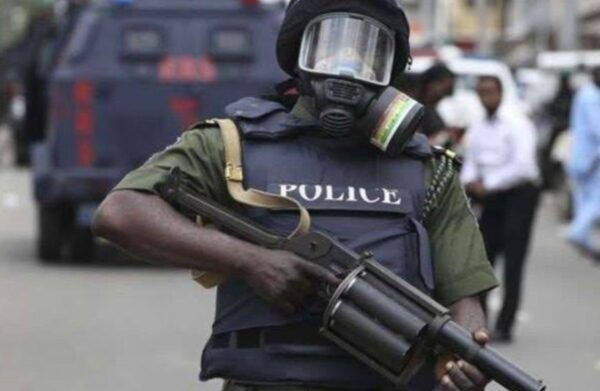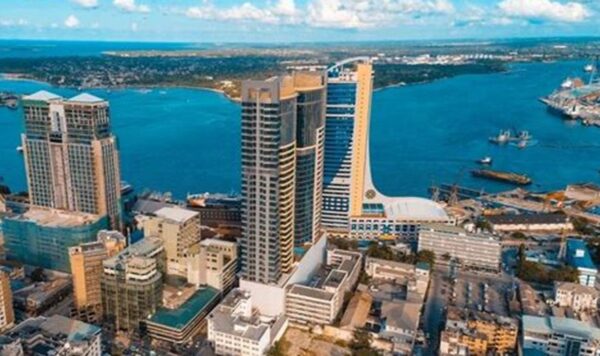Lifestyle
10 poorest countries in the world

The poorest countries in the world might not be as obvious as you may have assumed.
However, if you figured that every country that is listed as one of the poorest countries in the world is also a third world country, or a nation with a public debt problem, then you are not that far from the truth.
While there are instances in which the two overlap, it is not fair to automatically assume that all of the poorest countries in the world are also underdeveloped.
This is mostly due to the negative connotations associated with countries classified as third world nations.
We have listed the poorest countries in the world and all of them are in Africa. Check them below!
1. The central African Republic
The economy of Central African Republic is largely dependent on the export of diamonds, which brings in between 40-55% of the country’s export revenues. However, it is estimated that up to a half of those diamonds are sold on the black market, denying the government of tax revenue and undercutting honest, hardworking businesspeople trying to do things the right way.
2. The Democratic Republic of the Congo
There is perhaps no other country with an economic system more dysfunctional than that of the Democratic Republic of the Congo (DRC). Decades of strife and runaway militias have depleted these resources and limited the ability of the public to profit from them.
3. Burundi
Located in the Great Lakes region of Africa, Burundi has a history checkered with ethnic strife and military coups that have consistently derailed its long-term prospects for development. According to IMF data, well over 80% of the country’s population lives under the poverty line. Political unrest has once again rocked the country throughout 2015, despite the progress made over the past few years.
4. Liberia
The economy of Liberia was ravaged by the Ebola epidemic. However, even before this, the Liberian economy has depended heavily on foreign aid. Although Liberia used to rely strongly on agricultural products, the price of some of these products has decreased over time, making it harder to achieve a profit.
5. Niger
Niger is the largest country in West Africa, most of its territory is covered by the Sahara Desert, limiting the economic activities which the country’s populace can engage in.
Moreover, the country is completely landlocked and very resource poor. Even the 20% of the country not covered by the desert experiences periodic draughts, climate change is amplifying the effects of the combined threats of desertification of arable land and salinization of drinking water.
6. Malawi
With well over 85% of the country’s population of 16 million people living in rural areas and dependent on subsistence farming, the country’s economy is fragile and very dependent on foreign aid.
In 2013 President Joyce Banda sold the presidential jet and a fleet of 60 luxury cars to feed the poor and grow crops to fight malnutrition. Only to be embroiled in a financial scandal involving looting, theft and corruption within the government, that went public the next month.
In January of 2015, Malawi was in the news for another negative reason, as devastating floods left almost a quarter of a million people homeless and destroyed well over 64,000 hectares of cropland, furthering their economic woes.
7. Mozambique
Corruption is said to be a massive problem in the country, which hinders the economic success of individual citizens. Much of rural Mozambique lives on less than $1.25 US per day. Unfortunately, due to the lack of access to equipment, many agricultural workers are unable to yield as much as is necessary in order to make a profit. The economic situation in Mozambique is made worse by very poor infrastructure and access to vital services like clean water.
8. Guinea
Guinea, although very rich in natural resources, issues such as poor management, corruption, and lack of safe infrastructure all contribute to Guinea’s low per capita GDP of $1,265 USD per year. The provision of vital resources such as electricity and water are also a challenge in the country, which makes running a business very costly. These factors also make foreign investors hesitant about coming to Guinea.
9. Eritrea
Eritrea, the Horn of Africa, has seen a degree of growth in its economy in recent years.
However, it still ranks among the list of the world’s poorest countries. 80% of the population of Eritrea works in agriculture. A large amount of the country’s GDP is made up of remittance, i.e. money sent to residents from relatives abroad. The Eritrean-Ethiopian War was a major devastator of the Eritrean economy.
10. Madagascar
Madagascar is unique as being among the only island nations in this list of countries with substantially low levels of economic activity. The economy is largely dependent on agriculture, with chief products being rice, tea, cotton, and dairy. Madagascar has had a bad history of political strife and coups, issues which have had devastating effects on its economic productivity.










